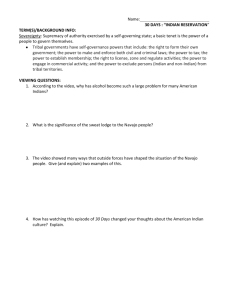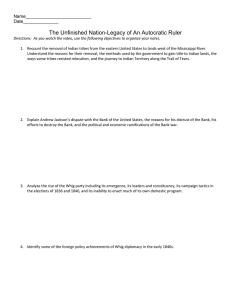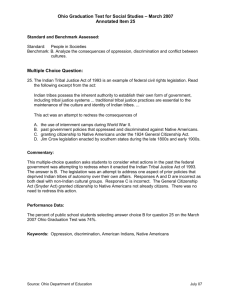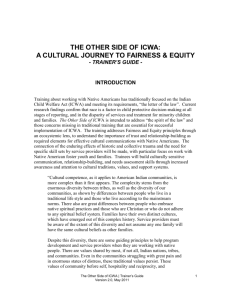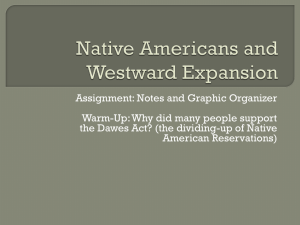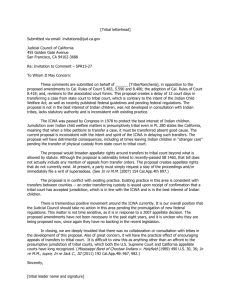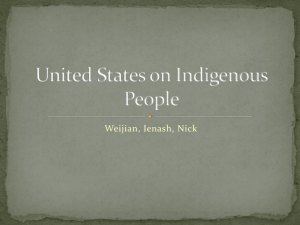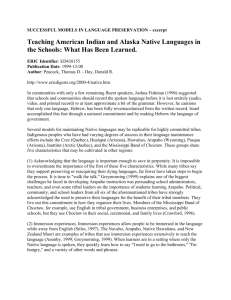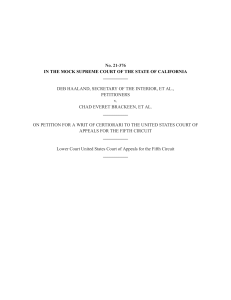Council for Social Work Education presentation –
advertisement
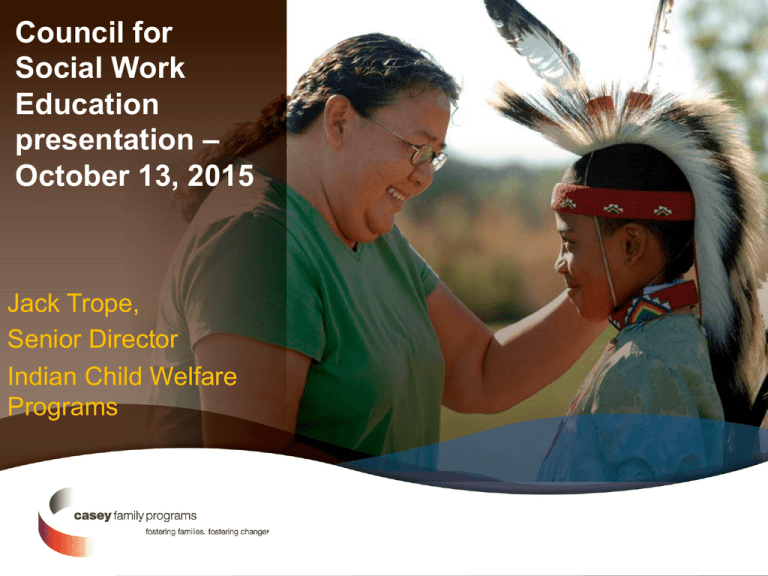
Council for Social Work Education presentation – October 13, 2015 Jack Trope, Senior Director Indian Child Welfare Programs Child Welfare Disproportionality: American Indian/Alaska Native childrren Summers & NCJFCJ, 2015 How can Social Work Education Help Address Disproportionality – AI/AN Children Ensure that the Indian Child Welfare Act (ICWA) is an important part of the curriculum. Help students: 3 How can Social Work Education Help Address Disproportionality – AI/AN Children Ø Understand the history behind and rationale for ICWA so that it is viewed as integral to the practice of child welfare, not a series of boxes to be checked when a child is Indian o History of widespread removals of Indian children as official and unofficial government policy by both the federal and state governments o Study in 1970s revealed that 25-35% of Indian people had been separated from their families at some point in time o Tribes are sovereign governments with a parens patriae interest in their children o Extended family networks in tribal communities are extensive and frequently play an important caretaking role in an Indian child’s life 4 How can Social Work Education Help Address Disproportionality – AI/AN Children Ø Recognize that to a substantial extent the provisions of ICWA are best practices from which all children and families can benefit o Active efforts to keep families together and strong presumption in favor of family preservation and reunification o Preferential placement with extended families and other families with a special connection to the child (e.g., other tribal families) when a child needs to be removed o Due process rights for parents in both involuntary and voluntary settings 5 How can Social Work Education Help Address Disproportionality – AI/AN Children Ø Appreciate the tribal role in ICWA not only on a philosophical and legal basis, but also as a potential resource to keep children safely with their families or extended families whenever possible o Tribes may have access to resources and services to help children and families over and above that available from states o Tribes are often more familiar with the familial relationships and able to identify extended family members for support and/or placement more effectively than the state o Tribes can provide a culturally-sensitive and relevant perspective to state child welfare systems o Tribal court can fashion remedies that state courts cannot 6 For Further Information Jack F. Trope Senior Director – ICWP jtrope@casey.org 7
